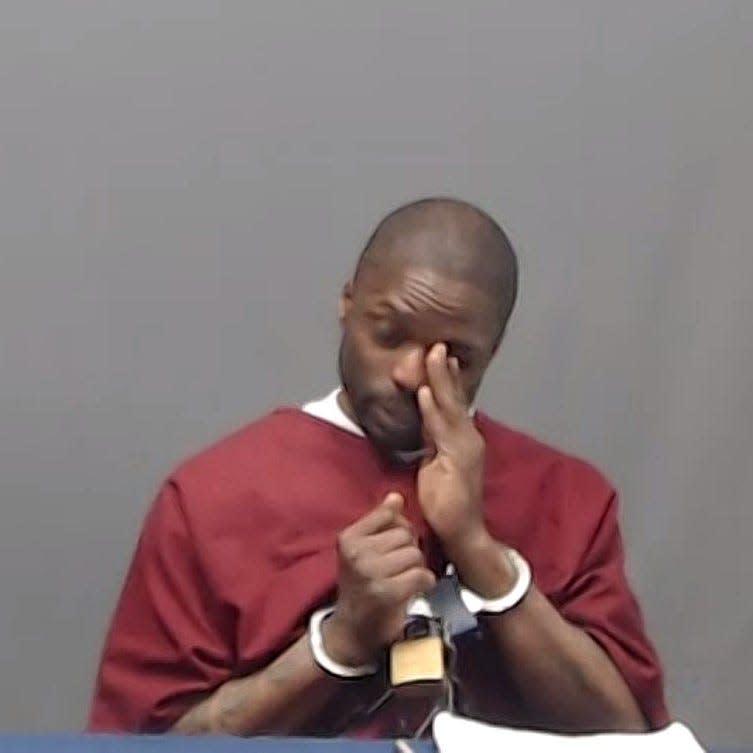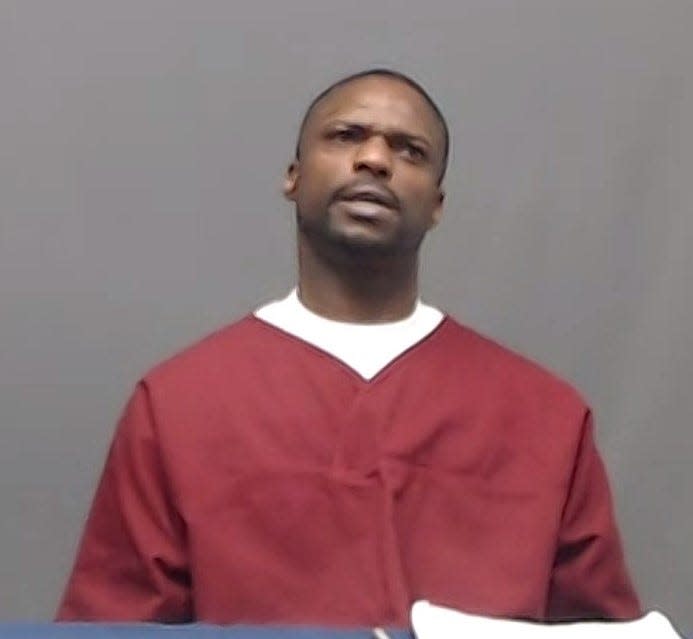Death row inmate Michael DeWayne Smith denied clemency despite tearful plea

Death row inmate Michael DeWayne Smith wept Wednesday as he pleaded for mercy, saying again he is innocent of two 2002 murders despite confessing to police.
"I didn't commit these crimes. I didn't kill these people. I was high on drugs," he told the Oklahoma Pardon and Parole Board by video.
More: Oklahoma prisons chief wants executions every 90 days to relieve burden on staff
"I don't know who did these crimes. I can't point the finger at nobody. I don't remember anything."
The parole board was not swayed, voting 4-1 to deny clemency. Smith, 41, is scheduled to be executed for both murders on April 4 at the Oklahoma State Penitentiary in McAlester.
"Justice will finally be served for their tragic loss," Attorney General Gentner Drummond said after the vote.
Smith also is serving a life sentence for a 2001 murder.
He could still avoid execution if he gets a stay as he seeks to get DNA testing on evidence. His emergency request for a stay is now before the Oklahoma Court of Criminal Appeals.
Smith told the parole board he was hallucinating from his drug use when he confessed to police. "Somebody told me something when I was high," he said.

His attorney, Mark Henricksen, told the parole board Smith is intellectually disabled. He contended Smith would have been spared from execution for that reason if his original attorneys had done their job.
Smith was convicted at trial of first-degree murder for two fatal shootings in Oklahoma City on Feb. 22, 2002. Jurors agreed he should be executed for both deaths.
The first victim, Janet Moore, 40, was shot once at her apartment. The second victim, Sharath Babu Pulluru, 24, was shot nine times at a convenience store where he was filling in for a friend.
Neither was Smith's original target, according to testimony at the trial.
At the time, he was 19 and a member of a street gang in Oklahoma City known as the Oak Grove Posse. He also was high on PCP and hiding from police, who had a warrant for his arrest on the 2001 murder case.
Prosecutors alleged after his arrest he was known as "Hoover Killer" or "HK."
The parole board was told Smith actually was looking for Moore's son, Phillip Zachary, because he thought Zachary was a snitch.
He had mistook a maintenance man knocking on his apartment door for the police and blamed Zachary, an assistant attorney general said.
He told police Moore "was just in the wrong place at the wrong time."
"It's her fault she died, you know what I'm saying," he told police. "She panicked and she got shot. ... She like, 'Help! Help!' I'm like, I had to. I had no choice."
The parole board was told Smith next went to the A&Z Food Mart to shoot a worker over comments to the newspaper about a robbery next door.
He instead killed Pulluru, Assistant Attorney General Aspen Layman said. "He was on a mission."
Pulluru was shot with two guns, then doused with lighter fluid and set on fire. Smith told police, "Whatever was in there. I let it all go. ... It was like he wouldn't die. That's why I shot him so many times. ... He like, 'What did I do?' ... Before he died I let him know, like, this is for my little homie that's dead."
The parole board was told Smith was upset because a clerk at the Trans Food Mart had killed a fellow gang member during a robbery on Nov. 8, 2000. The trial for two other gang members involved in the robbery was set to begin on Feb. 25, 2002.
The parole board was told Smith had recruited all three to the Oak Grove Posse.
A worker at the A&Z Food Mart had told The Oklahoman in 2000 he was proud of his neighbor.
"The rest of the kids will learn a lesson by him being dead and stop doing these things," the clerk had said.
Smith also confessed to his roommate and a neighbor, according to their testimony at his trial. His attorney on Wednesday called into question that testimony, saying police had "monkeyed" with the case to make certain a conviction was obtained.
Smith was convicted at a separate trial of second-degree murder for the fatal shooting of Otis Payne outside an Oklahoma City club on Nov. 24, 2001. He had admitted to police that he handed the gun to the shooter, David Burns.
The vote Wednesday means Gov. Kevin Stitt cannot grant clemency to Smith. The governor can only commute a death sentence if the parole board recommends clemency.
The attorney general called Smith a ruthless killer. His news release noted that only 10% of death row inmates in the United States have killed multiple times.
This article originally appeared on Oklahoman: Board votes 4-1 to deny death row inmate Michael DeWayne Smith clemency

